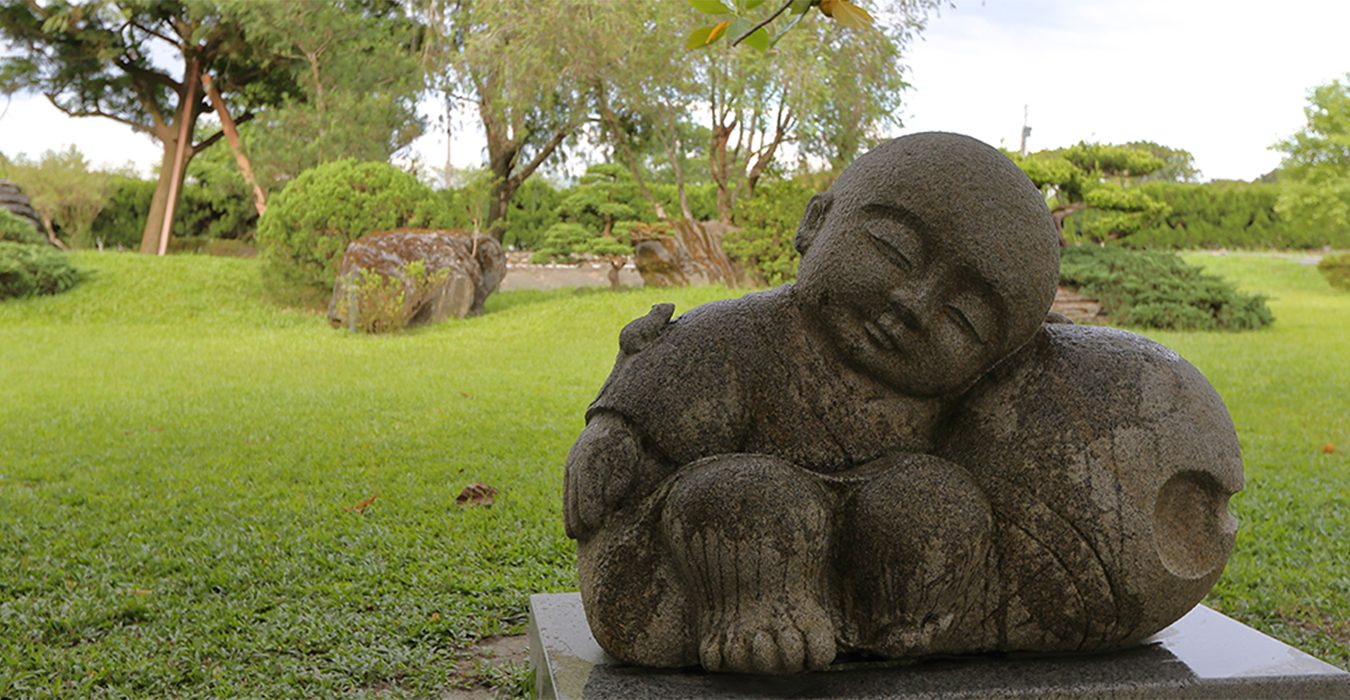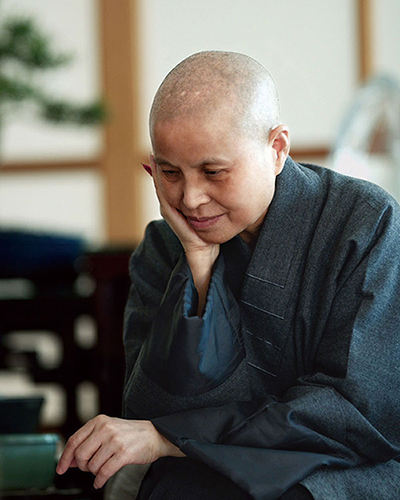
Walking the Bodhisattva Path
Forming bodhisattva aspirations and walking the Bodhisattva Path are not difficult. The challenge is to maintain a persistent, unwavering resolve and enduring patience.

Forming bodhisattva aspirations and walking the Bodhisattva Path are not difficult. The challenge is to maintain a persistent, unwavering resolve and enduring patience.

The Tzu Chi School of Buddhism requires us to have loving-kindness, compassion, joy, and equanimity. “With great loving-kindness, we have no regrets; our love is infinite. With great compassion, we have no complaints; our vows are infinite. With great joy, we have no worries; our happiness is infinite. With great equanimity, we give with no expectations; we realize infinite gratitude.”

This sutra describes the Buddha’s instructions to his disciples before he entered Parinirvana. When the Buddha entered Parinirvana, the disciples were to regard the precepts as their teachers. Moreover, they were also to distance themselves from anger, arrogance, and so on. He encouraged everyone to have self-discipline and to remain diligent in their spiritual cultivation.

The Adapted Verses of the Sutra of Infinite Meanings were compiled by Mr. Wang Tuan-cheng, who distilled the central ideas of the sutra and turned them into lyrics that could be set to music.

In Sanskrit, the Sutra of Infinite Meanings (also known as the Sutra of Innumerable Meanings) is called the Amitarthasutra. This sutra is one volume comprised of three chapters: the Chapter on Virtues, the Chapter on Expounding the Dharma, and the Chapter on the Ten Merits. Together with the Wondrous Dharma Lotus Flower Sutra and the Sutra of Meditation on Samantabhadra Bodhisattva, they form the Threefold Lotus Sutra. Before expounding the True Dharma of the Wondrous Dharma Lotus Flower Sutra, the Buddha first taught the Sutra of Infinite Meanings in the hopes that everyone in the state of unenlightened beings could develop great compassion and reach the Bodhisattva Path.

ABOUT ABOUT THE WEBSITE For over fifty years, Dharma Master Cheng Yen has led Tzu Chi’s volunteers in putting the Buddha’s teachings into practice, expanding

The Buddha Dharma is not impenetrably profound; everyone can learn it. In fact, we cannot do without learning the Buddha Dharma.
The Buddha Dharma is full of teachings that we can use every day, so integrating the Buddha Dharma in daily life is not difficult at all, and it can make our lives more wonderful.

The main theme of the Sutra of Profound Gratitude to Parents is the practice of filial piety. Master Cheng Yen feels very strongly about filial piety and emphasizes that “doing good deeds and being filial cannot wait.” This teaching integrates the Buddhist concepts of loving-kindness, compassion, joy, and equanimity with traditional Chinese ethics and morals. Her hope is that this teaching will not only serve as a standard for Tzu Chi volunteers, but that it will also become a principle which people around the world will hold in high esteem. Master Cheng Yen teaches that doing good deeds must begin with filial piety, for this is our duty as human beings. Thus, filial piety is also considered foremost among all good deeds and the key to planting pure causes.
Principles of The Jing Si Dharma Lineage & Tzu Chi School of Buddhism
This website outlines the core principles of Jing Si Dharma Lineage and the Tzu Chi School of Buddhism introduced via Master Cheng Yen’s teachings over time and how they paralleled key activities and events in the history of Buddhist Tzu Chi Foundation’s development. Translations and supporting content provided by the Dharma as Water Team.
© 2024.
Buddhist Tzu Chi Foundation is a 501(c)(3) nonprofit organization.